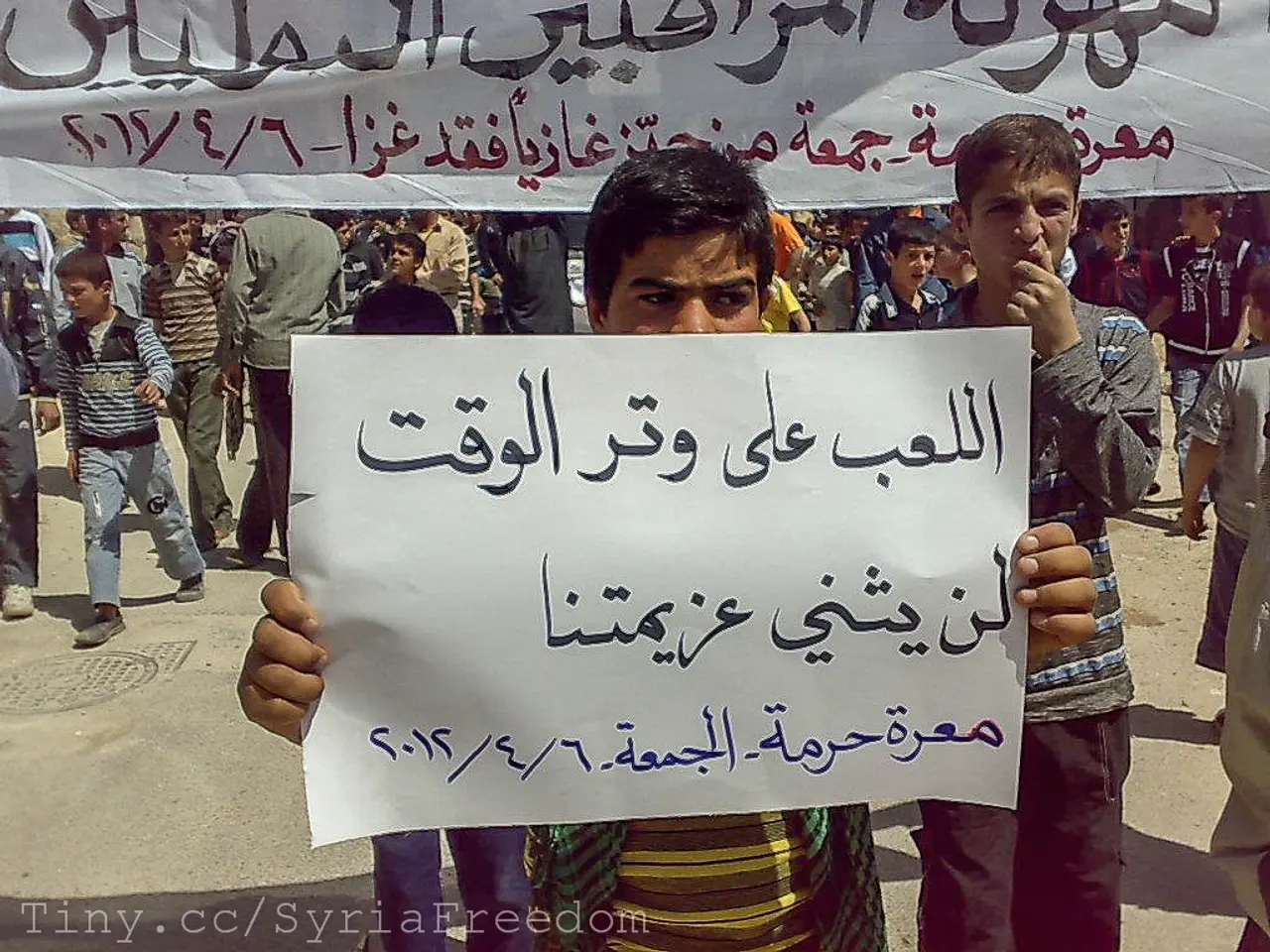Consequences of Journalism in Iran Carry a High Cost
In the heart of Iran's ongoing anti-government protests, BBC Persian journalists are at the forefront of reporting, but at a great personal cost. The regime's suppression efforts have intensified, targeting journalists both within and outside the country.
The Iranian regime has resorted to severe measures to silence dissenting voices. Journalists have been threatened, arrested, and even had their family members detained as a means of pressure. These individuals are labelled as "enemies of God," a charge that can carry the death penalty. Journalists also receive threatening calls urging them to delete social media posts or face repercussions.
The regime's crackdown on information extends beyond threats. Legal measures criminalize internet use, such as Starlink, and anti-war activism. Activists and media reporting on sensitive events like protests or explosions face sanctions. Iran's security forces conduct phone searches without warrants, and heavy internet censorship prevents free information flow, compounding risks for journalists covering dissent.
This pattern of repression has escalated sharply in 2025, coinciding with major political events and ongoing Iran-Israel tensions. The climate of fear is particularly intense for Persian-language media outlets like BBC Persian. Journalists operate under constant danger to themselves and their families.
The protests were sparked by the death in custody of 22-year-old Mahsa Amini. BBC reporters have been instrumental in bringing her story to the world, but at a personal cost. They rely heavily on social media to gather and verify information, a practice that comes with its own set of challenges. The authenticity of sources can be questionable due to the risks they face.
The BBC's job is not just to report on events, but to separate disinformation from real evidence. Reporters often communicate with traumatized sources day and night, requiring constant availability to respond. This demanding workload takes a toll on their personal lives, often leading to fractured family connections.
One journalist, Farnaz Ghazizadeh, questions whether her decision to join the BBC was worth it, given the personal sacrifices she has had to make. She discusses the death of her father in Iran and the regret she feels about not spending more time with him in the past 18 years. Farnaz has also faced online trolling after an article she wrote about Ayatollah Ruhollah Khomeini resurfaced.
Despite the challenges, BBC Persian journalists continue to report on the protests, shedding light on the ongoing struggle for change in Iran. The Iranian Ministry of Foreign Affairs continues to label BBC Persian as an organization involved in terrorism, but the journalists remain undeterred in their pursuit of truth and justice.
Journalists working for BBC Persian, amidst the turmoil of Iran's political landscape and ongoing protests, face threats and digital harassment. Besides the danger to themselves, they confront challenges verifying information from social media sources, which might be questionable due to the risks they take.
In addition to threats and censorship, Iranian authorities target journalists reporting on sensitive events like protests or explosions with sanctions. The legal landscape is designed to limit internet use, such as Starlink, and anti-war activism, further endangering journalists and activists.






